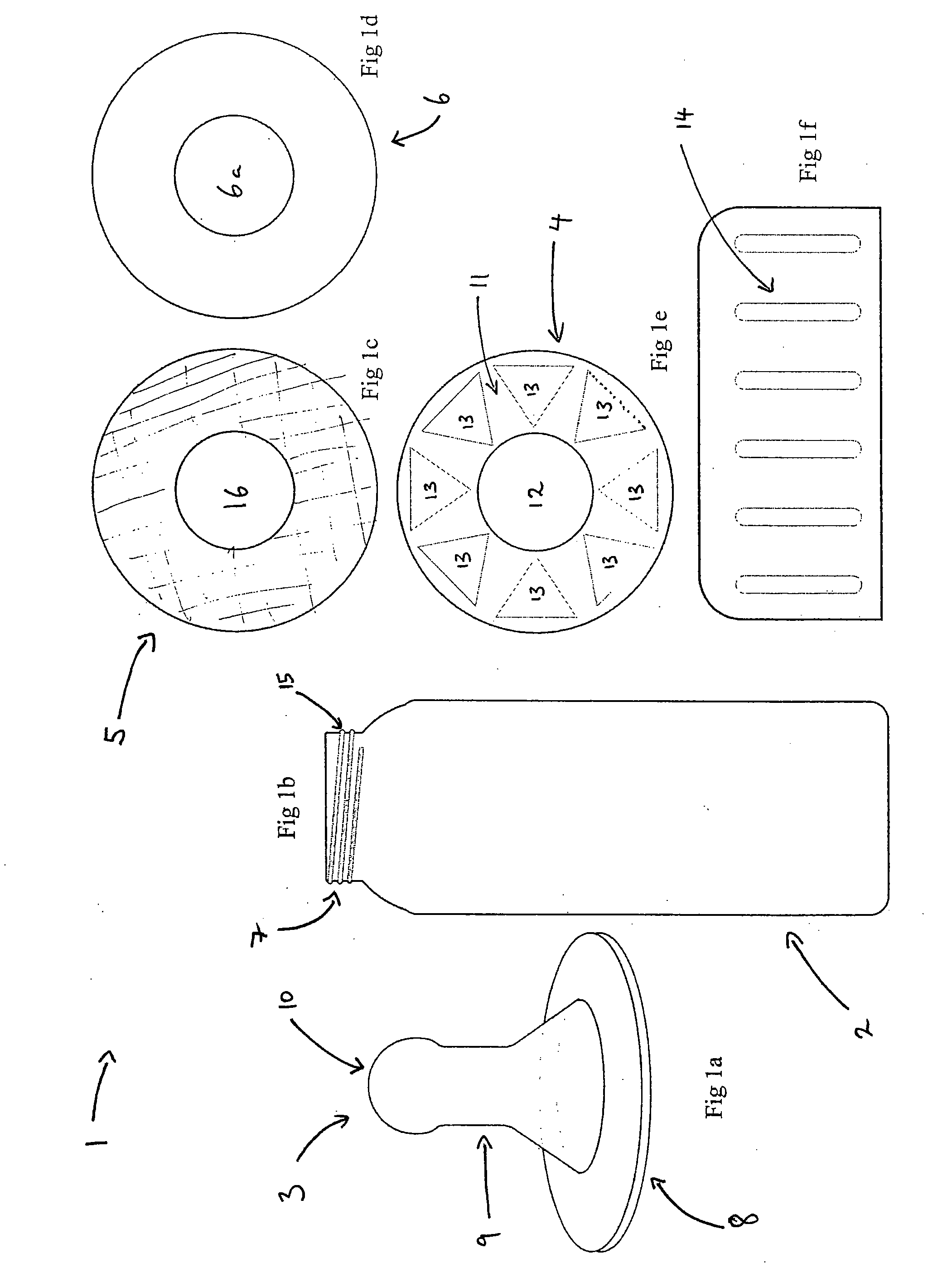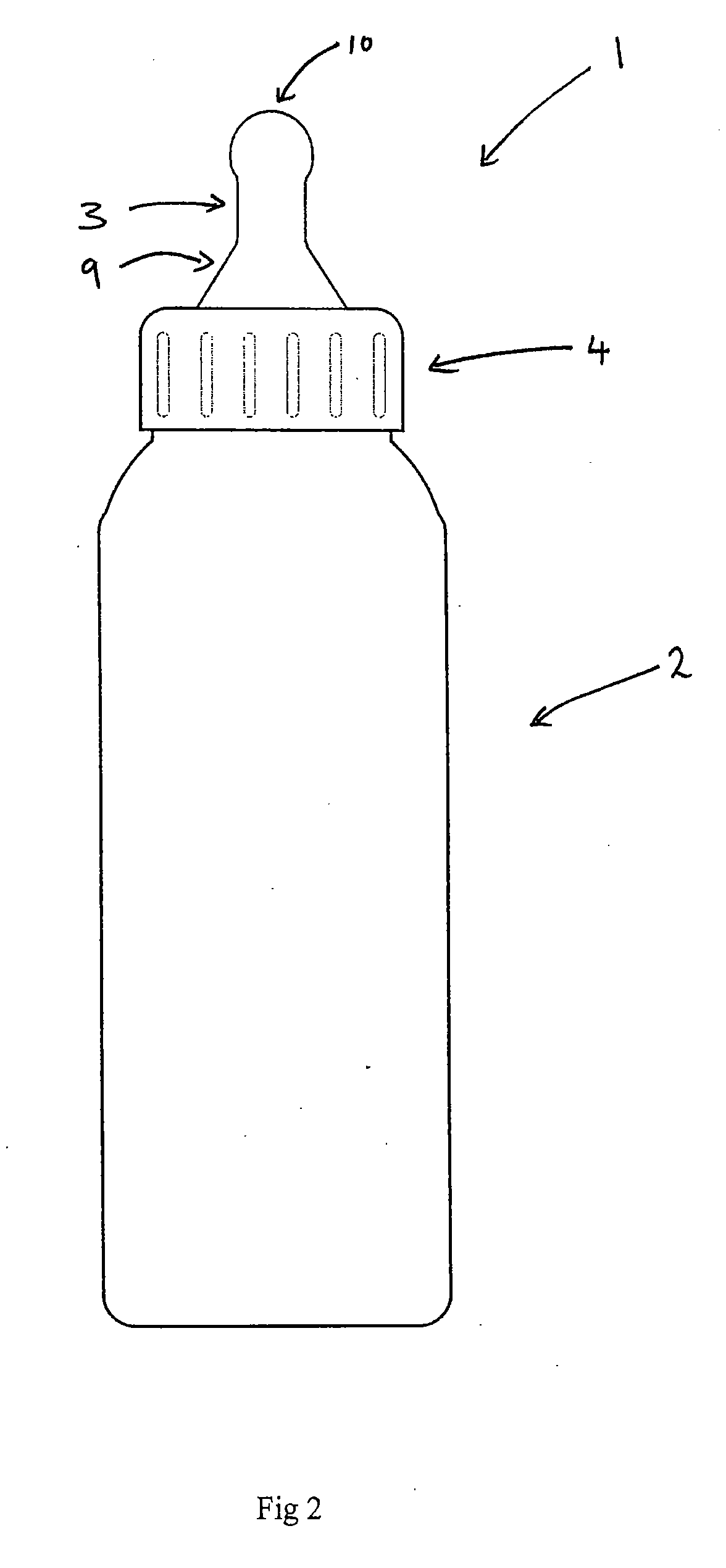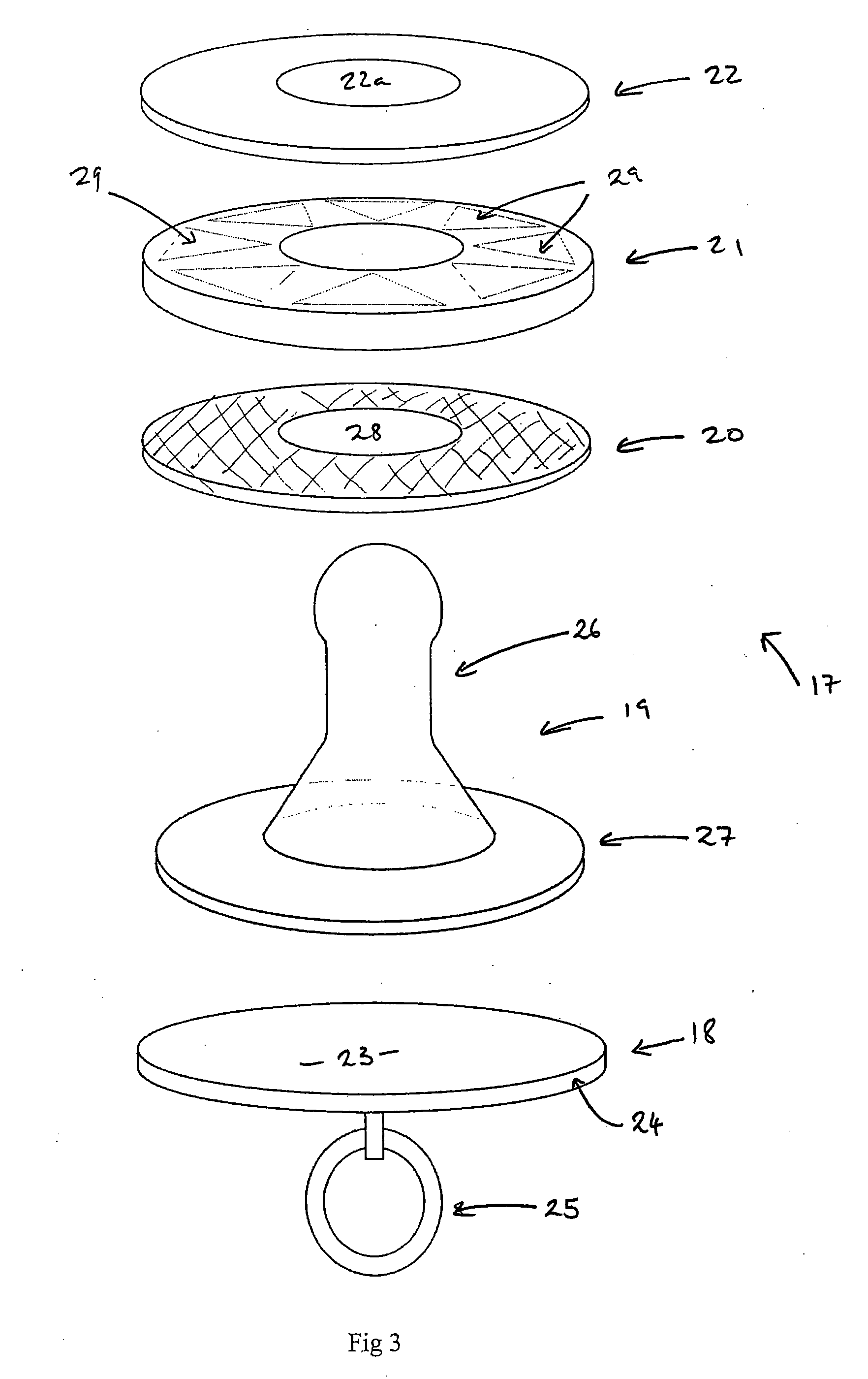Methods and devices for infant feeding
a technology for infants and infants, applied in the field of infant care, can solve the problems of infant nutrition and fluid intake reduction, fraught with difficulties, and infant feeding, and achieve the effects of reducing the usability of the odor carrier, preventing contamination, and absorbing odor and/or breast milk efficiently
- Summary
- Abstract
- Description
- Claims
- Application Information
AI Technical Summary
Benefits of technology
Problems solved by technology
Method used
Image
Examples
first embodiment
[0071] Referring firstly to FIGS. 1 and 2, in the invention a feeding device 1 comprises nutrition storage means in the form of a plastic container 2, a nutrition dispenser in the form a teat assembly 3, a fastening mechanism in the form of a container cap 4, an odor carrier in the form of an annular absorbent pad 5 made of cotton, and a shutter (cover) 6 in the form of an annular rubber ring.
[0072] The plastic container 2 has an upper end 7 comprising an opening for receiving nutrition. In use, once the container 2 has been filled with nutrition, its opening is covered by the teat assembly 3, which is held in place by the container cap 4. The absorbent pad 5 is infused with a mother's breast odor and then held in place between the teat assembly 3 and the cap 4 to provide an infant with olfactory cues when ingesting nutrition from the container via the teat assembly 3. The cover 6 is placed on top of the container cap 4 when the feeding device 1 is not in use.
[0073] To allow the te...
second embodiment
[0079] Referring now to FIGS. 3 and 4, in the invention a pacifier 17 comprises a backing section 18, a teat assembly 19, an odor carrier in the form of an annular absorbent pad 20 made of cotton, a cap 21 and a shutter (cover) 22 in the form of an annular rubber ring.
[0080] The backing section 18 comprises a disc having upper planar surface 23, a lower planar surface (not shown), and a rim surface 24 having a first screw thread (not shown) thereon. A ring shaped handle 25 is attached to the lower planar surface of the backing section 18, whilst the upper planar surface 23 provides support for the teat assembly 19.
[0081] The teat assembly 19 of the second embodiment has the same structure as the teat assembly 3 of the first embodiment, with the exception that the teat 26 itself is a pacifier teat, i.e. not adapted to dispense nutrition. The base section 27 of the teat assembly 19 has the same outer diameter as the backing section 18 and rests on the upper surface 23 of the backing ...
PUM
| Property | Measurement | Unit |
|---|---|---|
| temperature | aaaaa | aaaaa |
| concentration | aaaaa | aaaaa |
| shape | aaaaa | aaaaa |
Abstract
Description
Claims
Application Information
 Login to View More
Login to View More - R&D
- Intellectual Property
- Life Sciences
- Materials
- Tech Scout
- Unparalleled Data Quality
- Higher Quality Content
- 60% Fewer Hallucinations
Browse by: Latest US Patents, China's latest patents, Technical Efficacy Thesaurus, Application Domain, Technology Topic, Popular Technical Reports.
© 2025 PatSnap. All rights reserved.Legal|Privacy policy|Modern Slavery Act Transparency Statement|Sitemap|About US| Contact US: help@patsnap.com



